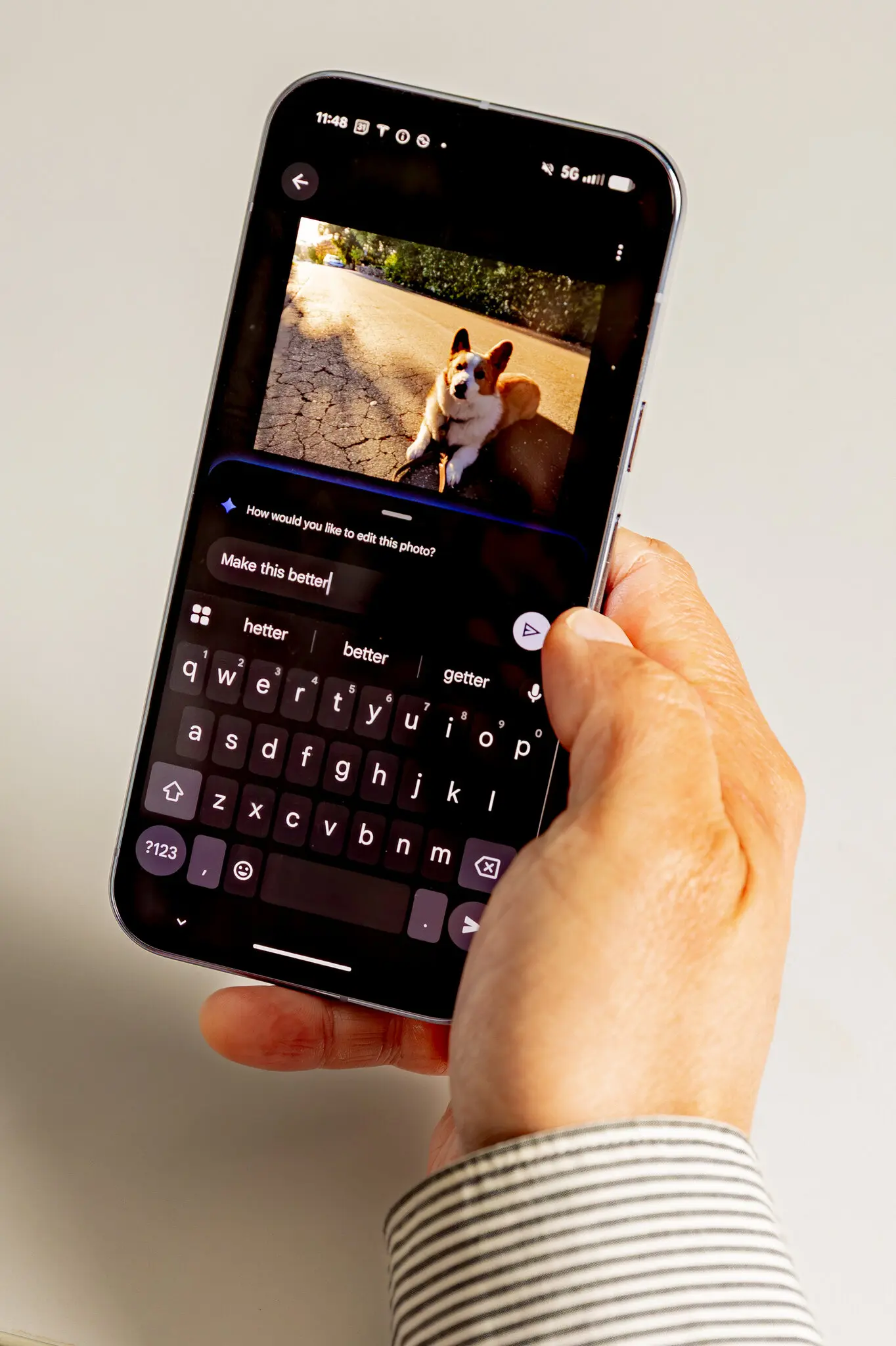Reviewing the Pixel 10 Pro: Google’s Smartest Phone Yet — If You Share Your Data
27.08.2025
Google Pixel 10 Pro Review: Convenience Through A.I. at the Cost of Privacy
First Impressions: A Week With Google’s “Smartest” Phone
Last week, I put Google’s new $1,000 Pixel 10 Pro to the test. Within moments, I noticed how aggressively it leaned on my personal data. When a friend asked what time I’d land in New Orleans, the phone instantly grabbed my flight details from an email and generated a reply. When another suggested a nearby Ethiopian restaurant, the Pixel automatically pulled up a map. Even snapping a picture of my corgi, Max, triggered the phone’s built-in photo coach, which instructed me to reposition him in the frame.
These moments felt both futuristic and unsettling. The Pixel is marketed as an “A.I. phone” — one that anticipates your needs by pulling from contacts, emails, texts, calendars, and more. While some tasks were streamlined, the trade-off was clear: my data was the fuel powering every convenience.
Efficiency or Intrusion?
The upside was undeniable. Small tasks, like instantly sharing my itinerary, became effortless. Yet the downside loomed larger — handing over sensitive personal information just to shave off seconds. Worse, the system sometimes got it wrong. During a call with an airline, the phone’s A.I. pulled unrelated financial data from a budgeting app instead of my itinerary, exposing how far its reach extended.
That experience underscored the deeper issue: these A.I. tools don’t just help; they probe into corners of your digital life you might never expect.
Meet “Magic Cue” — The Pixel’s A.I. Core
Central to the Pixel 10 Pro’s intelligence is Magic Cue, a software assistant designed to anticipate your actions. To activate it, you must allow access to nearly everything on your phone: Gmail, contacts, texts, calendar, screenshots, and more. In exchange, it offers shortcuts such as:
-
Auto-filling a friend’s number when asked in a text.
-
Pulling up flight details during calls with an airline.
-
Displaying weather for upcoming calendar events.
Google insists this tool is “privacy-first,” claiming data processing happens locally on the phone, not on company servers. Still, my tests showed that Magic Cue sometimes overreached, misidentifying financial records as travel details. The reminder was stark: opting in means exposing more of yourself than you may realize.

Smarter Photos, Ethical Questions
Google also added new photo features. The Camera Coach provided live tips, guiding me to zoom or adjust angles for sharper shots. Results were solid, though often redundant — I could have figured out most adjustments myself.
More striking was the A.I. editing tool. By typing simple prompts, I could remove objects from photos. In one restaurant shot, I asked it to erase a hand in the background; within seconds, the software replaced it with a fabricated table surface. While useful for casual editing, the ability to so seamlessly alter reality adds to growing concerns about digital fakery.
The Bigger Picture: A New Data Bargain
The Pixel 10 Pro signals a shift in how we trade privacy for convenience. In the past, the exchange felt balanced: use navigation apps, share your location. Now, the scale has tipped — A.I. demands nearly total access for relatively minor benefits.
Privacy experts warn this may not be worth the cost. Chris Gilliard, an independent scholar, bluntly summarized it: “The magic is surveillance.” Even with corporate promises of protection, the more access we grant, the weaker those walls become.

Final Verdict
The Pixel 10 Pro delivers glimpses of a possible future for smartphones — one where our devices anticipate needs before we even act. Yet that vision comes with strings attached: invasive data collection, occasional errors, and ethical dilemmas around digital manipulation.
For now, the Pixel’s A.I. feels more like an experiment than a must-have. Until it becomes more reliable — and transparent — many users may question if the seconds saved are worth the privacy surrendered.



